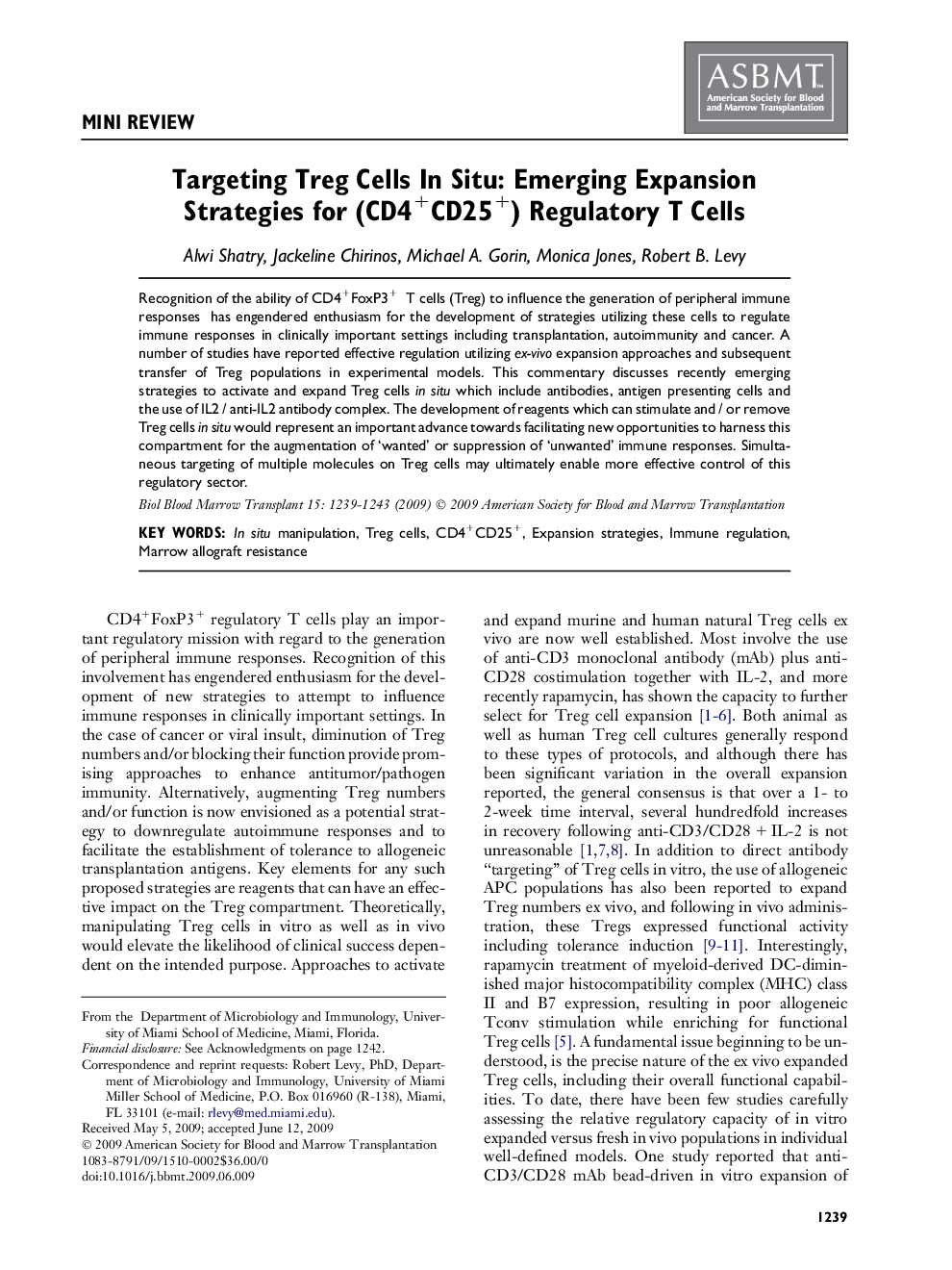| Article ID | Journal | Published Year | Pages | File Type |
|---|---|---|---|---|
| 2105573 | Biology of Blood and Marrow Transplantation | 2009 | 5 Pages |
Recognition of the ability of CD4+FoxP3+ T cells (Treg) to influence the generation of peripheral immune responses has engendered enthusiasm for the development of strategies utilizing these cells to regulate immune responses in clinically important settings including transplantation, autoimmunity and cancer. A number of studies have reported effective regulation utilizing ex-vivo expansion approaches and subsequent transfer of Treg populations in experimental models. This commentary discusses recently emerging strategies to activate and expand Treg cells in situ which include antibodies, antigen presenting cells and the use of IL2 / anti-IL2 antibody complex. The development of reagents which can stimulate and / or remove Treg cells in situ would represent an important advance towards facilitating new opportunities to harness this compartment for the augmentation of ‘wanted’ or suppression of ‘unwanted’ immune responses. Simultaneous targeting of multiple molecules on Treg cells may ultimately enable more effective control of this regulatory sector.
